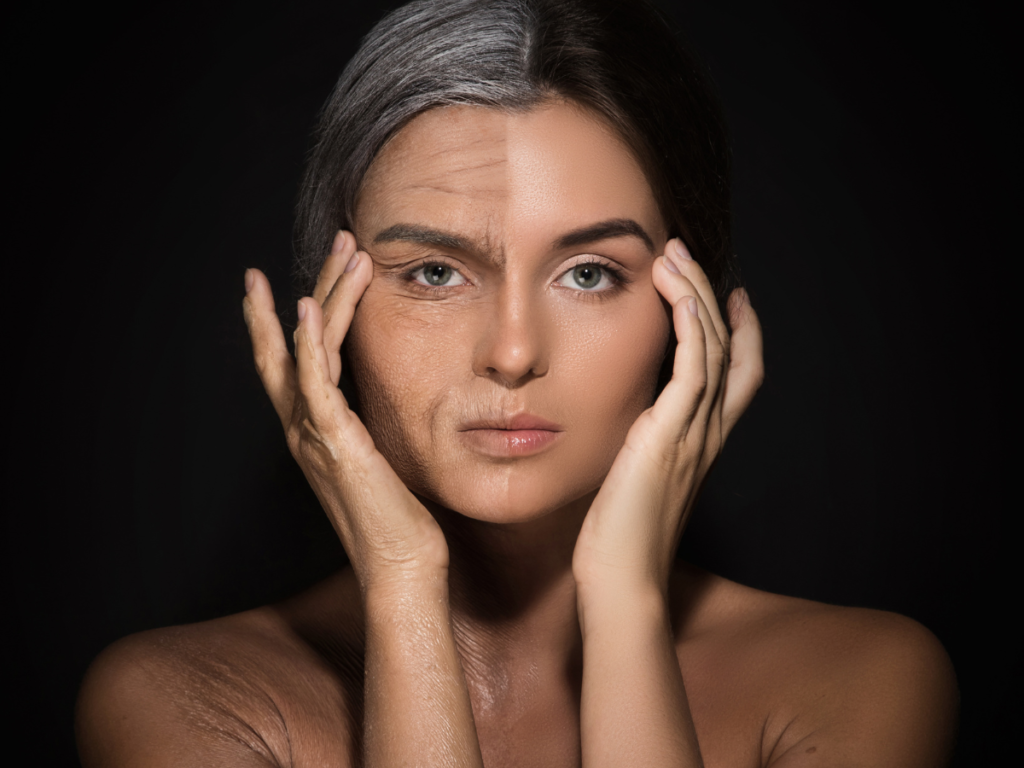Menopause Skin Care: Unveiling Vibrant Skin with DiscovHER Health
Premier Menopause Skin Care in DC, Maryland, and Virginia Embark on your menopausal journey with DiscovHER Health, your trusted partner in women’s health, specializing in comprehensive menopause skin care. Explore the nuanced impact of menopause on your skin and discover proactive measures for optimal skin health. Unveiling the Dynamics of Menopausal Skin Changes Menopause, a gradual process marked by a year without a period, brings diverse side effects, including hot flashes, fatigue, and transformative shifts in skin health. Understanding the intricacies of menopausal skin changes empowers you to navigate this phase with informed choices. Menopause-Driven Skin Transformations Deciphering the Root Causes of Menopausal Skin Alterations The abrupt loss of collagen and reduced estrogen levels emerge as pivotal factors, dictating the skin’s response to the menopausal transition. Collagen, the cornerstone of skin plumpness, experiences a rapid decline, giving rise to sagging and wrinkles. Simultaneously, diminished estrogen levels lead to dry skin and heightened acne vulnerability due to altered oil production. Proactive Measures for Menopause Skin Health Menopause necessitates strategic steps for skin well-being: Tailored Treatments for Menopause Skin Care DiscovHER Health offers professional treatments to address menopausal skin changes comprehensively: Elevating Home Remedies for Menopause Skin Care Embrace advanced skincare with ingredients like retinol, vitamin C, and hyaluronic acid, imparting a new dimension to home-based skincare practices. Prioritize hydration, quality sleep, and a balanced lifestyle to complement the efficacy of skincare routines. Navigating FAQs with Expert Insight How do you calm menopausal skin? Explore products with niacinamide, hyaluronic acid, and natural extracts like green tea to restore equilibrium to irritated skin. What is perimenopausal skin? Perimenopause may exhibit signs like redness, acne, slight sagging, and overall dryness, requiring tailored skincare approaches. Does menopausal acne go away? In most cases, menopausal acne resolves as hormones stabilize. Achieve temporary relief using products with ingredients like retinol and salicylic acid. Embrace Menopause with DiscovHER Health: Your Confidence Catalyst Navigate the transformative menopausal journey confidently with DiscovHER Health. Elevate both intimate and skin-related concerns with our specialized menopause skin care. Connect with us to schedule your consultation and prioritize your skin’s health through the menopausal transition. Your radiant menopausal skin begins here. About Us Jenna Perkins is a board certified Women’s Health and Gender Related Nurse Practitioner with extensive knowledge and experience in Urogynecology, Pelvic Pain, Sexual Health, and complex Gynecology. She is founder of DiscovHER Health, Northern Virginia’s premier destination for women’s healthcare and expertly curated products. DiscovHER Health Offers cutting edge treatments Pelvic Health + Wellness Skincare | Face + Body Body Toning + Tightening Weight Loss Program Where are we located? We are located in Alexandria, Virginia and serve patients from all over the Mid-Atlantic including Washington DC, Alexandria, Baltimore, and Chevy Chase Related Topics



